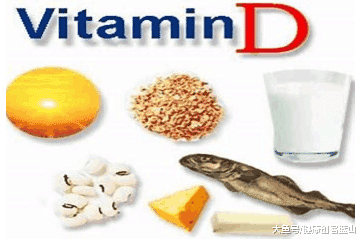爱丁堡大学 晒太阳产生一氧化氮 预防心脏病的好处远大于皮肤癌的风险
University of Edinburgh: Sun Exposure Benefits May Outweigh Risks Say Scientists
晒太阳产生一氧化氮,预防心血管病的好处远大于皮肤癌的风险
英国爱丁堡大学的科学家认为,暴露在阳光下对心脏健康的益处可能超过患皮肤癌的风险。
在这项具有里程碑意义的研究中,研究人员发现,当阳光照射到我们的皮肤时,一种名为一氧化氮的化合物会释放到我们的血管中。一氧化氮有助于降低血压。
皮肤学高级讲师理查德·韦勒(Richard Weller)和他的同事们说,总的来说,日晒的效果可以改善健康,甚至延年益寿,因为降低血压、减少心脏病和中风的益处,远远超过患皮肤癌的风险。
这项原则验证研究将于本周在爱丁堡举行的2013年国际皮肤研究大会上公布。
摘要发表在《自然》杂志网络版上
4月15日皮肤病学调查杂志。
晒太阳减少心脏病和中风的益处,远远超过患皮肤癌的风险
研究人员指出,冬季高血压和心血管疾病的发病率上升与地理纬度有关(例如,北欧的发病率高于南欧)。
此外,据估计,在北欧,每1个死于皮肤癌的人中,约有60至100人死于与高血压有关的中风和心脏病。
这项新研究很重要,因为直到现在人们还认为阳光对人体健康唯一的益处是维生素D的产生,而维生素D在暴露在阳光下后会上升。
韦勒和他的同事发现,人体内一氧化氮的生成与维生素D的生成是分开的
此前的研究发现,这上升的维生素D水平与降低心血管疾病有关,口服维生素D补充剂对此没有影响。
韦勒和他的同事发现,人体内一氧化氮的生成与维生素D的生成是分开的。
在他们的研究中,他们邀请了24名志愿者在太阳灯下坐上2个20分钟,同时测量他们的血压。
在一次实验中,他们让志愿者暴露在紫外线和灯光的热量下。在另一组实验中,他们只让他们暴露在灯的热量下,并阻挡紫外线。
结果显示,当志愿者暴露在紫外线和高温下时,他们的血压会下降,心率会上升,但当他们只暴露在高温下时,情况就不同了。血压的降低持续了大约50分钟。
人体皮肤含有大量的亚硝酸盐(NO2)和硝酸盐(NO3)。研究人员指出,虽然硝酸盐在生物学上是惰性的,但阳光的作用可以将它还原为活性亚硝酸盐和一氧化氮(NO)。
他们发现,在紫外线和高温下,循环硝酸盐会下降,亚硝酸盐会上升,但在高温下则不会。维生素D水平没有差异。
韦勒在一份声明中说:
“我们推测阳光对心脏健康的益处将超过患皮肤癌的风险。”我们所做的工作提供了一种可能解释这一现象的机制,也解释了为什么膳食维生素D补充剂不能弥补缺乏阳光的影响。
他和他的团队现在想要研究那些在阳光下接受不同剂量照射的人患皮肤癌和心脏病的相对风险。
韦勒说:“如果这证实了阳光可以降低所有死因的死亡率,我们就需要重新考虑我们在阳光照射方面的建议。”
也有人建议,暴露在阳光下有助于预防传染病。例如,2011年,伦敦大学圣乔治医院(St George’s Hospital)的病毒学家菲尔·赖斯(Phil Rice)提出,太阳的紫外线会使皮肤上的水痘病毒失去活性。
Sun Exposure Benefits May Outweigh Risks Say Scientists
Published Wednesday 8 May 2013 By Catharine Paddock PhD
Scientists at the UnIversity of Edinburgh in the UK suggest that the heart-health benefits of sun exposure may outweigh the risk of developing skin cancer.
In the landmark study, the researchers found that when sunlight touches our skin, a compound called nitric oxide that helps lower blood pressure, is released into our blood vessels.
Richard Weller, Senior Lecturer in Dermatology, and colleagues, say the effect is such that overall, sun exposure could improve health and even prolong life, because the benefits of reducing blood pressure, cutting heart attacks and strokes, far outweigh the risk of getting skin cancer.
The proof-of-principle study is being presented this week in Edinburgh at International Investigative Dermatology 2013, the world's largest gathering of skin experts.
The abstract was published online in the
Journal of Investigative Dermatology on 15 April.
The researchers note that rates of high blood pressure and cardiovascular disease rise in winter and are tied to geographic latitude (for instance they are higher in northern Europe than in southern Europe).
Also, estimates show that in northern Europe, for every death from skin cancer, about 60 to 100 people die of stroke and heart disease linked to high blood pressure.
This new study is important because until now it was thought that sunlight's only benefit to human health was production of vitamin D, which rises after exposure to the sun.
Previous studies have found that while increased
vitamin D levels link to lower cardiovascular disease, oral supplements do not have an effect on this.
Weller and colleagues found that the body's production of nitric oxide is separate from production of vitamin D.
For their study they invited 24 volunteers to sit under sunlamps for two 20 minute sessions while they examined their blood pressure.
In one session, they exposed the volunteers to both ultra-violet (UV) rays and heat from the lamps. In the other session, they only exposed them to the lamps' heat and blocked the UV rays.
The results showed that the volunteers' blood pressure fell and their heart rate rose in the session where they were exposed to both UV and heat, but not when they were exposed to heat only. The reduction in blood pressure lasted for about 50 minutes.
Human skin contains large stores of nitrite (NO2) and nitrate (NO3). The researchers note that while nitrate is "biologically inert", the action of sunlight can reduce it to active nitrite and nitric oxide (NO).
They found that circulatory nitrate fell and nitrite rose during UV and heat exposure, but not during exposure to heat only. There was no difference in vitamin D levels.
Weller says in a statement that:
"We suspect that the benefits to heart health of sunlight will outweigh the risk of skin cancer. The work we have done provides a mechanism that might account for this, and also explains why dietary vitamin D supplements alone will not be able to compensate for lack of sunlight."
He and his team now want to look at the relative risks of skin cancer and heart disease in people who have received different amounts of exposure to sunlight.
"If this confirms that sunlight reduces the death rate from all causes, we will need to reconsider our advice on sun exposure," says Weller.
There have also been suggestions that exposure to the sun can help prevent infectious disease. For example, in 2011, Phil Rice, a virologist at St George's Hospital, University of London, suggested that the sun's UV rays inactivate the chickenpox virus on the skin.
Written by Catharine Paddock PhD
https://www.medicalnewstoday.com/articles/260247.php



.png)